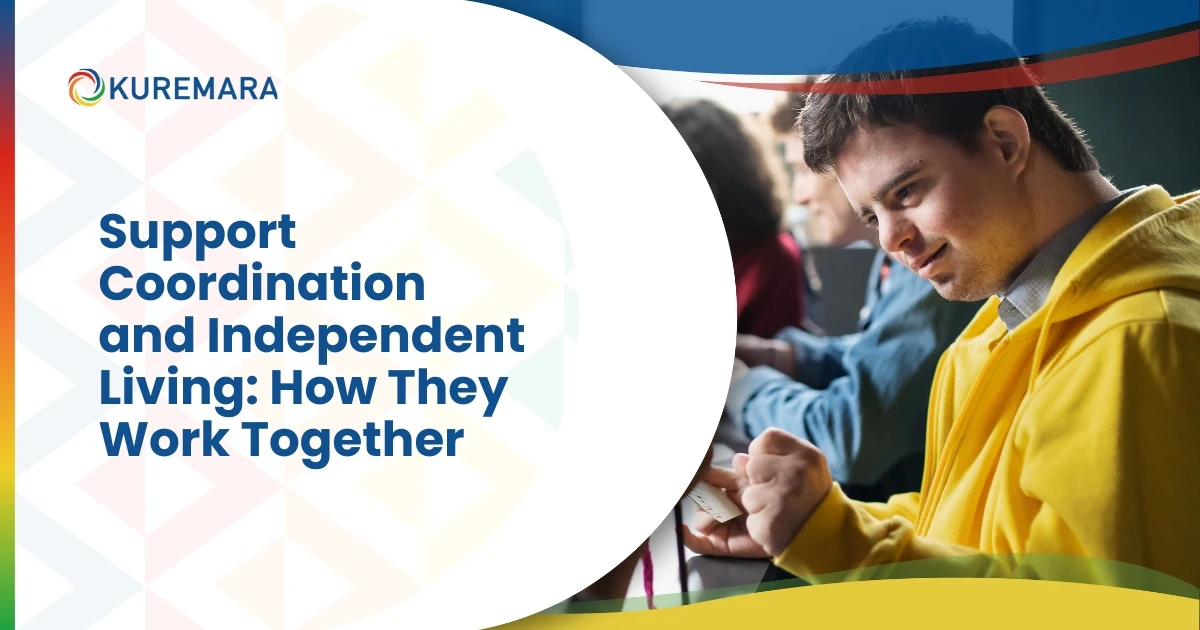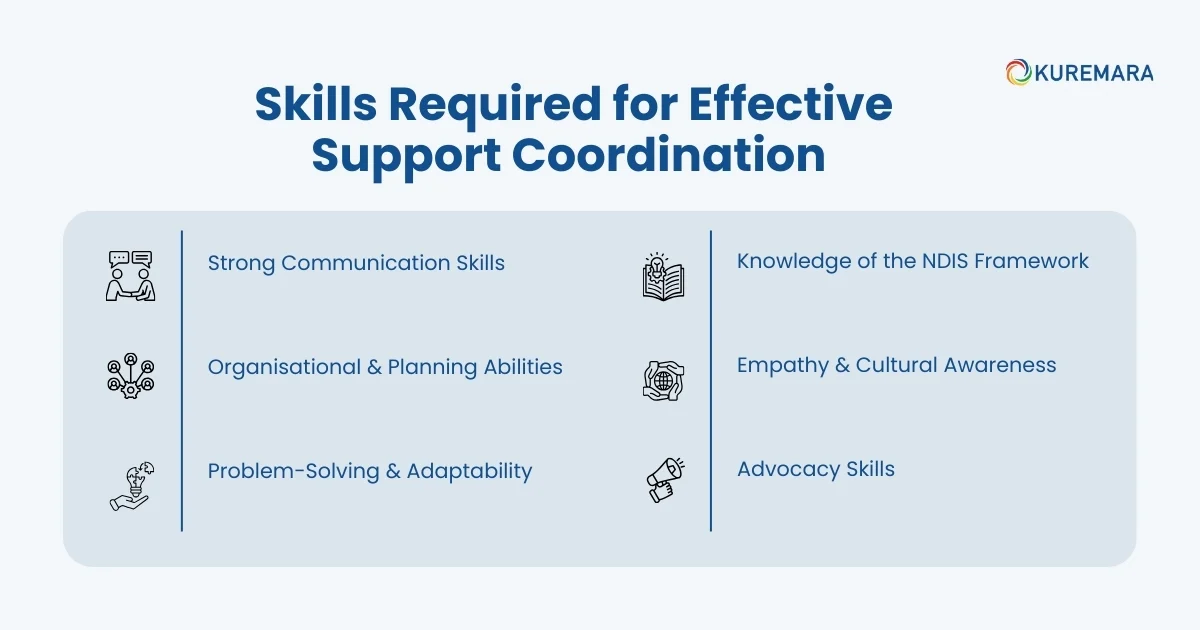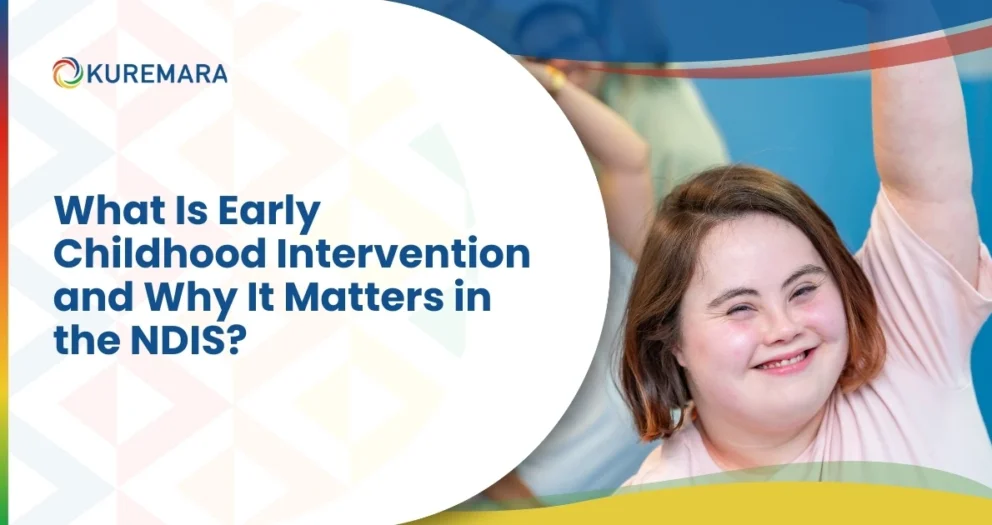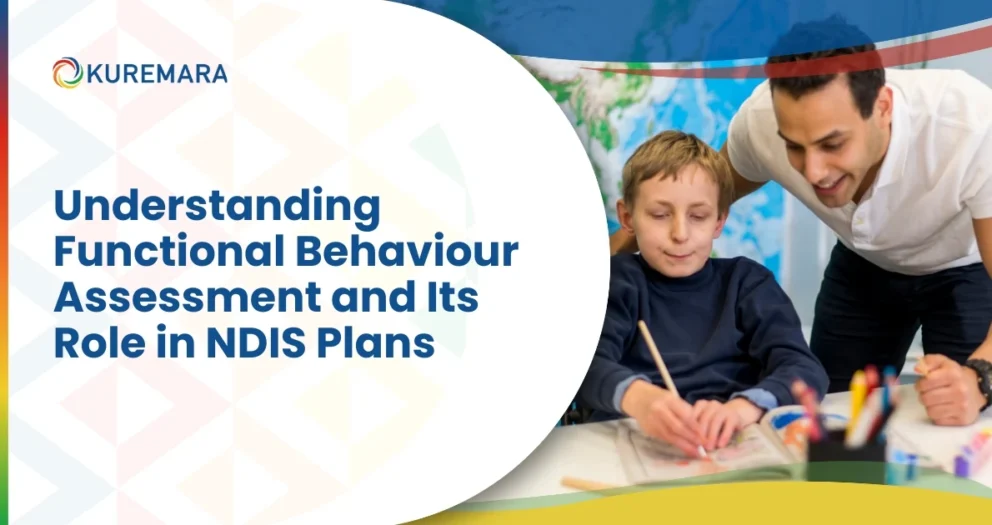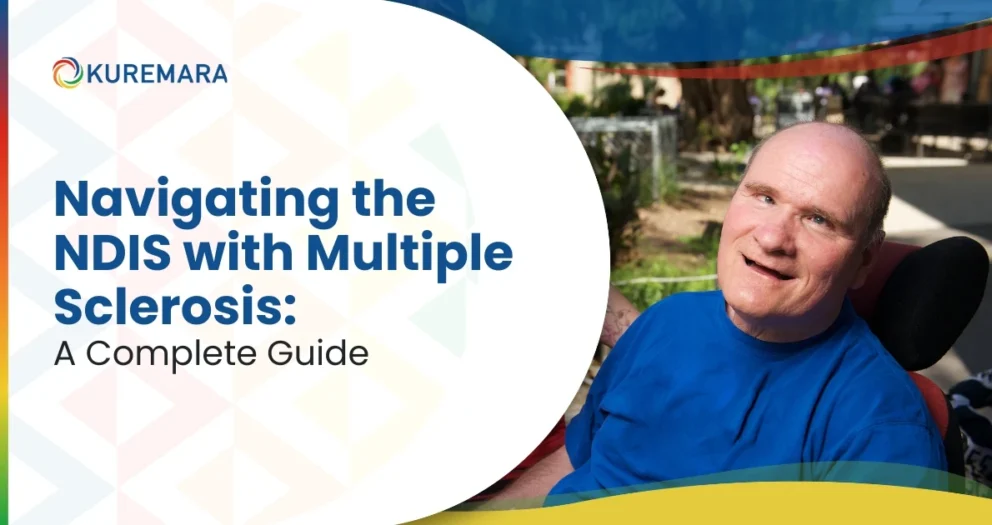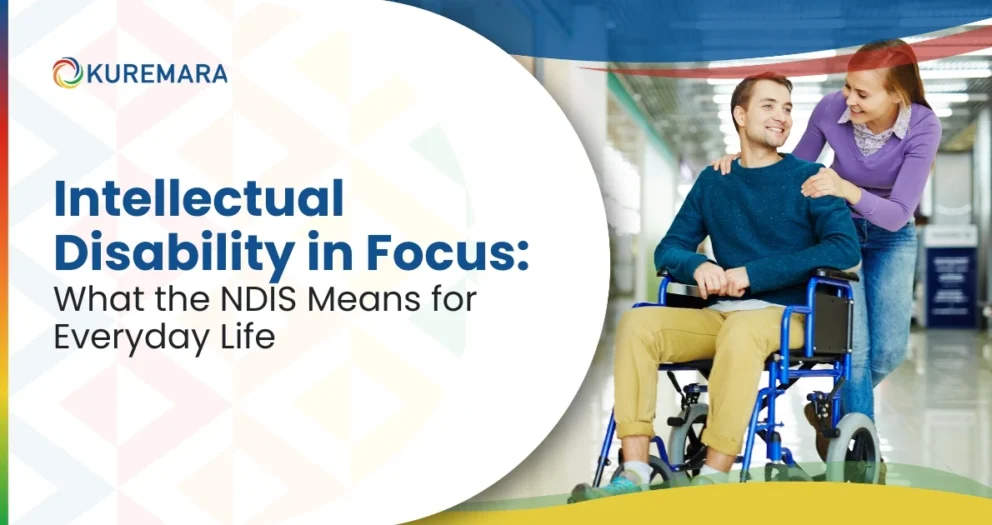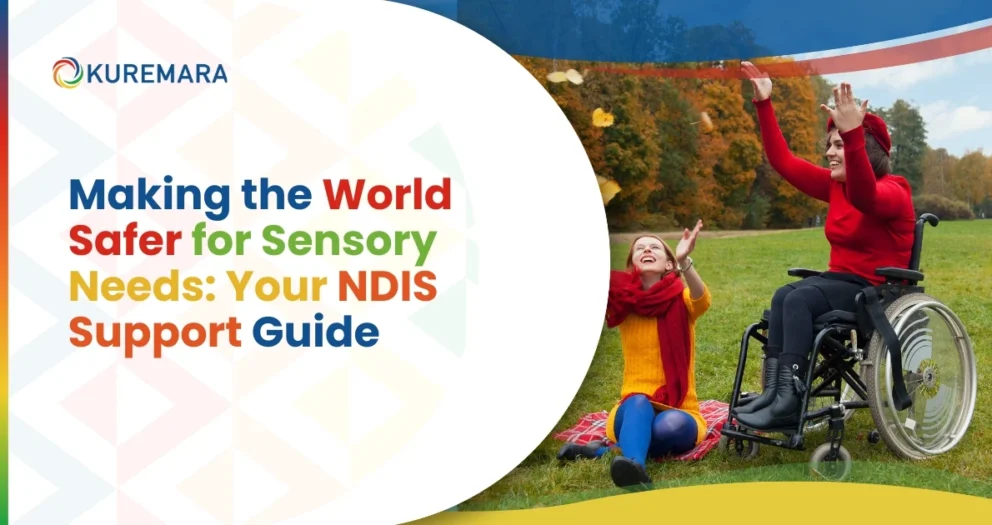Introduction: The Power of Working Together
Navigating the NDIS can feel overwhelming, especially when balancing everyday life, personal goals, and the supports available. Two services that often work hand-in-hand to create meaningful outcomes are Support Coordination and Supported Independent Living (SIL).
At Kuremara, we believe these services complement each other helping people not just access their NDIS plans, but also live in a way that reflects their values, goals, and aspirations. As an NDIS registered provider delivering disability support services across Australia, we work alongside participants, families, and support networks to ensure that, wherever you are whether in Melbourne, Sydney, Brisbane, or beyond you have the right supports and living arrangements to thrive.
Understanding Support Coordination
What Is Support Coordination?
Support Coordination is an NDIS-funded service that helps participants understand, implement, and manage their plans. It’s about connecting people with the right supports, services, and community connections so they can achieve the life they choose.
The Role of a Support Coordinator
A dedicated Support Coordinator will:
- Help unpack the NDIS plan and explain available funding.
- Connect participants with providers who match their preferences, goals, and cultural background.
- Coordinate service agreements and schedules.
- Provide ongoing support, making adjustments as needs and goals evolve.
Skills Required for Effective Support Coordination
Support Coordination is about more than arranging services; it’s about empowering people to have choice and control over their supports. To do this well, Support Coordinators combine professional skills with empathy and respect:
1. Strong Communication Skills
- Explaining NDIS processes in clear, everyday language.
- Listening actively to understand goals, needs, and preferences.
- Maintaining open, respectful communication with all parties.
2. Organisational and Planning Abilities
- Managing multiple supports and schedules efficiently.
- Ensuring services complement each other without unnecessary overlap.
- Prioritising actions so participants can access supports promptly.
3. Problem-Solving and Adaptability
- Addressing challenges quickly and constructively.
- Finding suitable alternatives when preferred options aren’t available.
- Responding effectively to changes in needs or NDIS guidelines.
4. Knowledge of the NDIS Framework
- Understanding eligibility, funding categories, and plan management.
- Staying updated on NDIS policy changes and local services.
- Helping participants make the most of their funding.
5. Empathy and Cultural Awareness
- Recognising the individual journey each person takes.
- Respecting diverse cultural, linguistic, and personal identities.
- Building trust through understanding and genuine care.
6. Advocacy Skills
- Ensuring participants’ voices are heard and respected.
- Navigating systems to remove barriers to necessary supports.
What Is Supported Independent Living (SIL)?
1. Definition & Purpose
Supported Independent Living is an NDIS support that enables people to live in shared or individual accommodation with tailored assistance for daily life. It supports greater independence while ensuring safety, comfort, and well-being.
2. Types of SIL Arrangements
- Shared Accommodation: Living with other participants in a supportive, inclusive home environment.
- Individual Living: Living independently with tailored support.
3. Benefits of SIL
- Skill Development: Building confidence in everyday tasks such as cooking, cleaning, and budgeting.
- Social Inclusion: Forming connections with housemates, neighbours, and community members.
- Increased Independence: Having the freedom to make daily choices with the reassurance of available support.
4. Kuremara’s SIL Services
We provide safe, welcoming, and accessible living spaces, with compassionate support staff available 24/7. Our homes are designed to foster independence, build confidence, and support people to participate fully in community life.
How Support Coordination and SIL Work Together
* Creating a Seamless Support Network
Support Coordination ensures SIL arrangements align with personal goals, funding, and lifestyle preferences.
* Aligning NDIS Goals with Living Arrangements
When a participant’s plan includes both Support Coordination and SIL, the coordinator:
- Helps explore accommodation options that reflect individual preferences.
- Facilitates introductions to potential housemates.
- Ensures the SIL provider understands each person’s goals and support needs.
* Example Journey
Imagine a participant who wishes to live closer to family in Brisbane. Their Support Coordinator identifies SIL options in the area, arranges viewings, and ensures a smooth move, managing everything from lease agreements to establishing daily routines.
Location-Specific Insights
Support Coordination in Melbourne
- Local Focus: Melbourne offers a wide range of providers, giving participants choice and flexibility in SIL arrangements.
- Guidelines: Victorian NDIS operations prioritise community engagement and culturally inclusive supports.
- Perks: Access to urban community hubs, accessible transport, and inclusive job programs.
Support Coordination in Sydney
- Local Focus: A diverse mix of metropolitan and coastal SIL options.
- Guidelines: NSW teams often work with multicultural service networks to meet varied participant needs.
- Perks: Strong connections to disability advocacy groups and inclusive community events.
Support Coordination in Brisbane
- Local Focus: A blend of city-based SIL homes and regional living opportunities.
- Guidelines: Queensland emphasises community-based skill building and outdoor activities.
- Perks: Access to inclusive recreation programs, training opportunities, and regional service networks.
The Participant’s Perspective: Benefits of an Integrated Approach
When Support Coordination and Supported Independent Living are managed in unison, the experience for an NDIS participant can feel more streamlined, empowering, and life-changing. Here’s why:

1. Informed and Confident Decision-Making
- Without guidance, choosing where and how to live can be overwhelming. A Support Coordinator helps you:
- Understand the types of SIL options available, from shared living to fully independent arrangements.
- Compare the pros and cons of each option in relation to your goals, lifestyle, and budget.
- Access information in plain language, so you feel confident about every choice.
This guidance means you’re not just accepting the first option offered, you’re making a decision that truly works for your needs.
- Access information in plain language, so you feel confident about every choice.
2. Consistency in Care and Communication
- One of the biggest frustrations for participants can be explaining the same needs to multiple providers. When your Support Coordinator works directly with your SIL team:
- Everyone stays on the same page about your support requirements.
- Adjustments to your plan or routines are communicated smoothly.
- You receive continuous, coordinated care without gaps or misunderstandings.
This consistency helps build trust, making your home feel like a stable and secure base.
- You receive continuous, coordinated care without gaps or misunderstandings.
3. Maximising the Value of Your NDIS Funding
- Support Coordination is about making your funding work harder for you. By integrating SIL into the planning process:
- You avoid paying for duplicated services.
- Your plan is tailored so every dollar goes towards supports that directly improve your daily life.
- You can access the right support sooner, reducing delays that can eat into your plan budget.
4. Building Skills for the Future
- Beyond the practical benefits, this combined approach fosters personal growth:
- You learn to navigate decision-making with professional support.
- You gain more independence through daily living skills.
- You build resilience, confidence, and social connections that last long after your plan cycle.
Why Choose Kuremara for Support Coordination and SIL
- Nationwide Reach, Local Understanding: Support that reflects the unique character of each community.
- Personalised Care: Every plan is built around individual goals and preferences.
- Experienced, Compassionate Team: Coordinators and support workers who are dedicated to making a positive difference.
How to Get Started with Kuremara
1. Connect With Us: Reach out for a friendly conversation about your needs.
2. Share Your Plan: We’ll work with you to understand your goals and preferences.
3. Meet Your Coordinator: Get matched with someone who understands your journey.
4. Explore Options: Discover SIL opportunities that fit your lifestyle.
5. Start Living Your Way: Begin your path towards greater independence.
Conclusion & Call to Action
Support Coordination helps people navigate their NDIS plans with confidence, while Supported Independent Living provides the environment and tailored assistance to bring those plans to life. Together, they offer a pathway to independence, inclusion, and meaningful participation in the community.
At Kuremara, we bring together nationwide expertise and local knowledge to make sure every person receives support that reflects who they are and what they want to achieve. From understanding your plan to finding the right home, our team walks alongside you every step of the way.
 care@kuremara.com.au
care@kuremara.com.au
